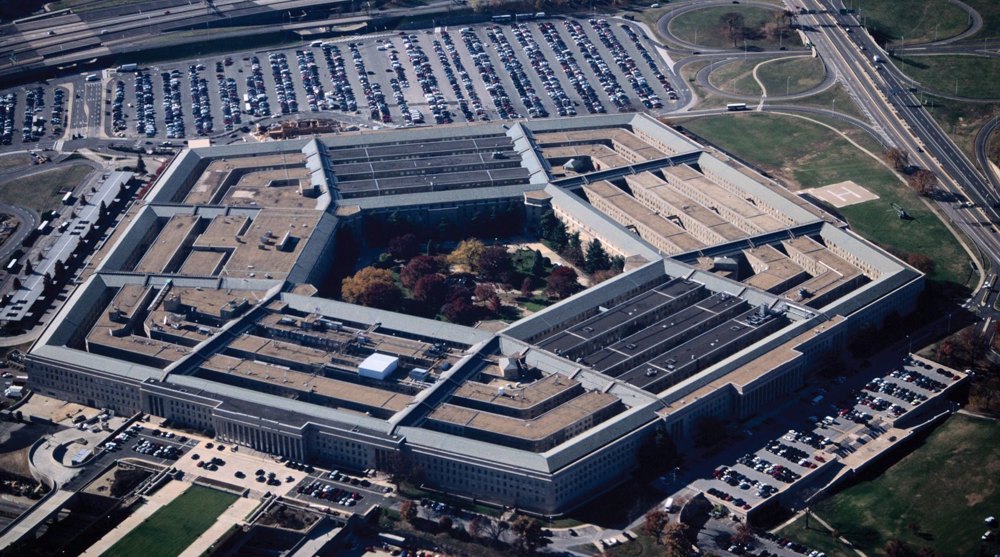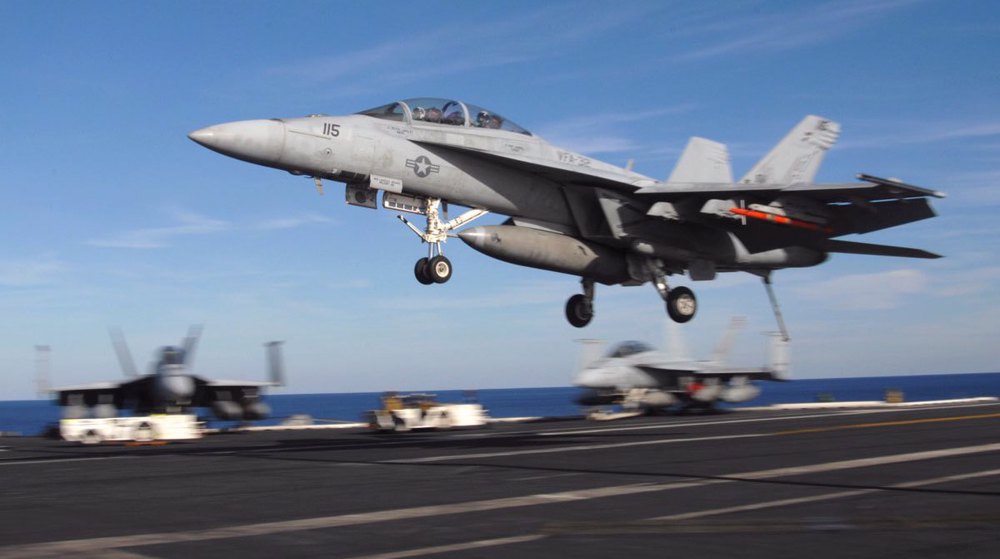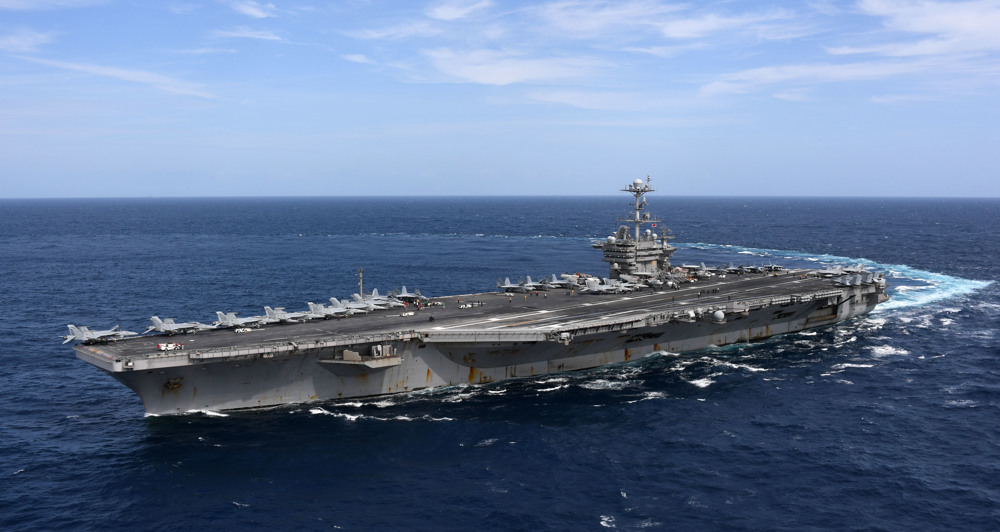New Democratic push for Pentagon cuts highlights China, shipbuilding woes
Amid growing pressure from left-leaning Democratic lawmakers to reduce and redistribute defense spending by billions of dollars a year, a top Republican on the House Armed Services Committee says his colleagues need to study the intel more closely.
Last week, 50 House Democrats sent wrote to US President Joe Biden, arguing he should divert “hundreds of billions of dollars now directed to the military” to diplomatic, humanitarian, and public health programs at home and abroad. The effort follows a similar failed attempt in the Senate last year to cut defense spending by 10%, which was handily defeated on floor votes.
“I encourage the folks that have signed that letter to look at the impact of their decision and to actually get the briefs, get the classified briefs as to what the current state of threat is for the United States,” Rep. Rob Wittman, a top Republican on the House Armed Services Committee, told.me.
The new budgetary challenge emerged Friday when Democrats Sen. Edward Markey and Rep. Ro Khanna, member of the HASC, introduced their “Investing in Cures Before Missiles” ICBM Act. It would halt development of a new ICBM to replace the stockpile of aging Minuteman III missiles, a move they estimate would save up to $96 billion in coming years.
The savings from scuttling that program, along with other nuclear efforts, would be pumped into developing a universal coronavirus vaccine and studying other emerging and infectious diseases, the lawmakers say. The work on the effort kicked off last September, when the Air Force awarded a contract for $13.3 billion to Northrop Grumman to replace the Minutemen.
The bill has some prominent Democratic co-sponsors in the Senate and House — though on on the Armed Services Committees — including Sens. Chris Van Hollen, Bernie Sanders and Jeff Merkley; along with Reps. Pramila Jayapal, Barbara Lee, Mark Pocan and Ayanna Pressley — among others.
The nuclear triad has been a hot topic for some Democrats since they took the White House and both chambers. Defense Secretary Lloyd Austin and Deputy Secretary Kathleen Hicks raised eyebrows during their confirmation testimony when they voiced general support for modernizing the nuclear triad but stopped short of supporting any specific program or timeline for modernization.
“You have one party control,” of Congress and the White House, Wittman said of the moves to cut defense spending. “So you are going to have folks within that party that are going to try to exert their influence — that’s part of the political process.”
While the large scale cuts are not likely to make much progress in Congress, the 2022 defense budget is expected to arrive come in at the same level as 2021. Because of inflation, the flat top line will actually mean the budget will shrink a bit by reducing the DoD’s buying power and forcing a ranking of priorities.
Whatever the overall budget is once it’s released in May, it appears that the size of the Navy budget will receive particular scrutiny.
Kathleen Hicks has already signaled that a revamped shipbuilding plan is the department’s top priority, an issue that literally falls in Wittman’s backyard, as his district encompasses heavily-Navy centric southern Virginia.
“Let’s just look at the Chinese navy. You know, the Chinese navy for a number of years now has had more ships than the United States, and we’ve always said we’re not worried about it because our ships are so much better. But what we’re seeing right now so Chinese have both quantity and quality,” he said.
Beijing also appears to have developed the capacity to be able to sustain and repair ships relatively quickly, though that shipyard capacity has never been tested in a conflict. Still, the size and breadth of their ability to build and fix ships puts more pressure on the aging and limited American docks already straining under peacetime workloads.
“If we get into a conflict with China, this is not going to be like a World War II conflict where we have massive elements of the industrial base that can quickly convert to manufacturing the necessities for war…that’s just not going to happen. The Chinese have more capability to both repair and sustain building of ships if the conflict is sustained versus the United States, while we just have extraordinarily limited capability there.”
The Navy is rushing to revamp its current 20-year, $21 billion plan to revitalize its public shipyards where the fleet’s nuclear maintenance is done, in the wake of numerous delays getting ships and submarines out on time, trying to speed the effort up by as much as a decade.
But Wittman also wants to see moves made to partner with private shipyards to handle some of the work.
“There’s no way that you sustain a navy with the public yards the way they are, and that means you got to spin up some additional private capacity,” Wittman said. “Even if you’re going to go in and repair those [public] yards, they aren’t going to be able to have ships in the dry docks as you’re repairing them so you’re going to have to use some capability on the private side.”
That work won’t come cheap, and leads to the growing consensus in the Pentagon and on Capitol Hill that the Navy may need to be funded more robustly, a shift that would likely drain resources from the Army and Air Force.
Chairman of the Joint Chiefs Gen. Mark Milley has thrown his weight behind resourcing the Navy in a way that the other services might feel some pain, and both Democrats and Republicans on the Hill have followed suit.
The White House is going to have to emphasize shipbuilding and maintenance “if they’re serious about the Indo-Pacific,” Wittman said. “You are going to have to focus your recapitalization of the fleet at a pretty brisk pace and getting those ships out there, and then once you build that fleet, you got to maintain it.”
On weighing the budget, “we have to really rethink the whole game where we deploy our assets, and how we make investments for the future,” Wittman said. Getting the mix of how to spread the budget dollars between the services, while modernizing the nuclear triad, “I think are going to be the most challenging questions the Pentagon, and for that matter, Congress is going to have to answer.”
Source: Breaking Defense
‘All wars have rules. All of those rules have been broken’ by Israel
VIDEO | Report flags India’s violation of rights of Rohingya detainees
Turkey's foreign minister meets Syria's de facto leader in Damascus
'Next to impossible' to rescue patients from Gaza's Kamal Adwan Hospital: Director
VIDEO | Vietnam current prosperity
Report blames gasoil exports for shortage at Iranian power plants
VIDEO | Hind Rajab Foundation names Israeli war criminals vacationing after Gaza genocide
VIDEO | Australians rally for Gaza ahead of Christmas festivities










 This makes it easy to access the Press TV website
This makes it easy to access the Press TV website